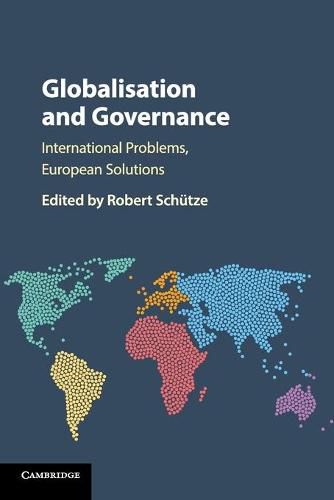Readings Newsletter
Become a Readings Member to make your shopping experience even easier.
Sign in or sign up for free!
You’re not far away from qualifying for FREE standard shipping within Australia
You’ve qualified for FREE standard shipping within Australia
The cart is loading…






While it might have been viable for states to isolate themselves from international politics in the nineteenth century, the intensity of economic and social globalisation in the twenty-first century has made this impossible. The contemporary world is an international world - a world of collective security systems and collective trade agreements. What does this mean for the sovereign state and ‘its’ international legal order? Two alternative approaches to the problem of ‘governance’ in the era of globalisation have developed in the twentieth century: universal internationalism and regional supranationalism. The first approaches collective action problems from the perspective of the ‘sovereign equality’ of all States. A second approach to transnational ‘governance’ has tried to re-build majoritarian governmental structures at the regional scale. This collection of essays wishes to analyse - and contrast - the two types of normative and decisional answers that have emerged as responses to the ‘international’ problems within our globalised world.
$9.00 standard shipping within Australia
FREE standard shipping within Australia for orders over $100.00
Express & International shipping calculated at checkout
Stock availability can be subject to change without notice. We recommend calling the shop or contacting our online team to check availability of low stock items. Please see our Shopping Online page for more details.
While it might have been viable for states to isolate themselves from international politics in the nineteenth century, the intensity of economic and social globalisation in the twenty-first century has made this impossible. The contemporary world is an international world - a world of collective security systems and collective trade agreements. What does this mean for the sovereign state and ‘its’ international legal order? Two alternative approaches to the problem of ‘governance’ in the era of globalisation have developed in the twentieth century: universal internationalism and regional supranationalism. The first approaches collective action problems from the perspective of the ‘sovereign equality’ of all States. A second approach to transnational ‘governance’ has tried to re-build majoritarian governmental structures at the regional scale. This collection of essays wishes to analyse - and contrast - the two types of normative and decisional answers that have emerged as responses to the ‘international’ problems within our globalised world.